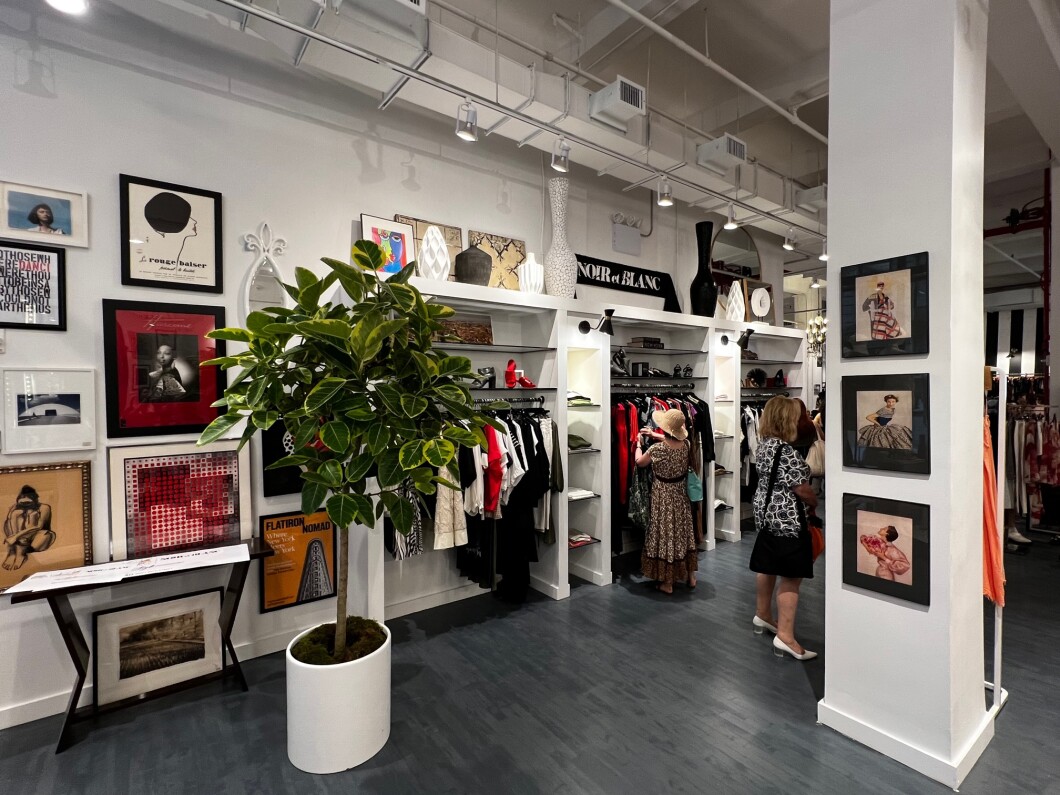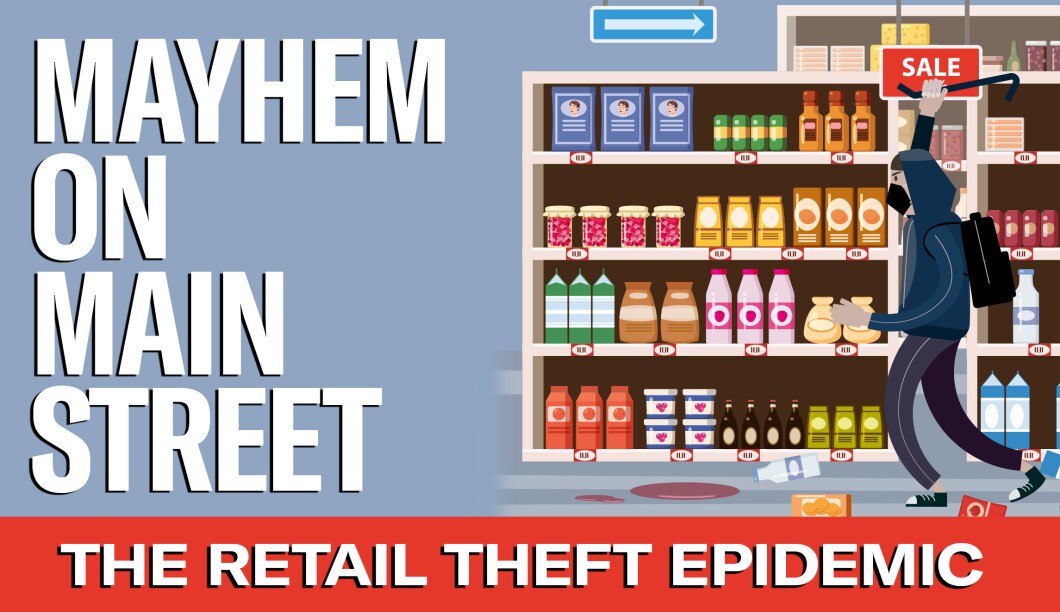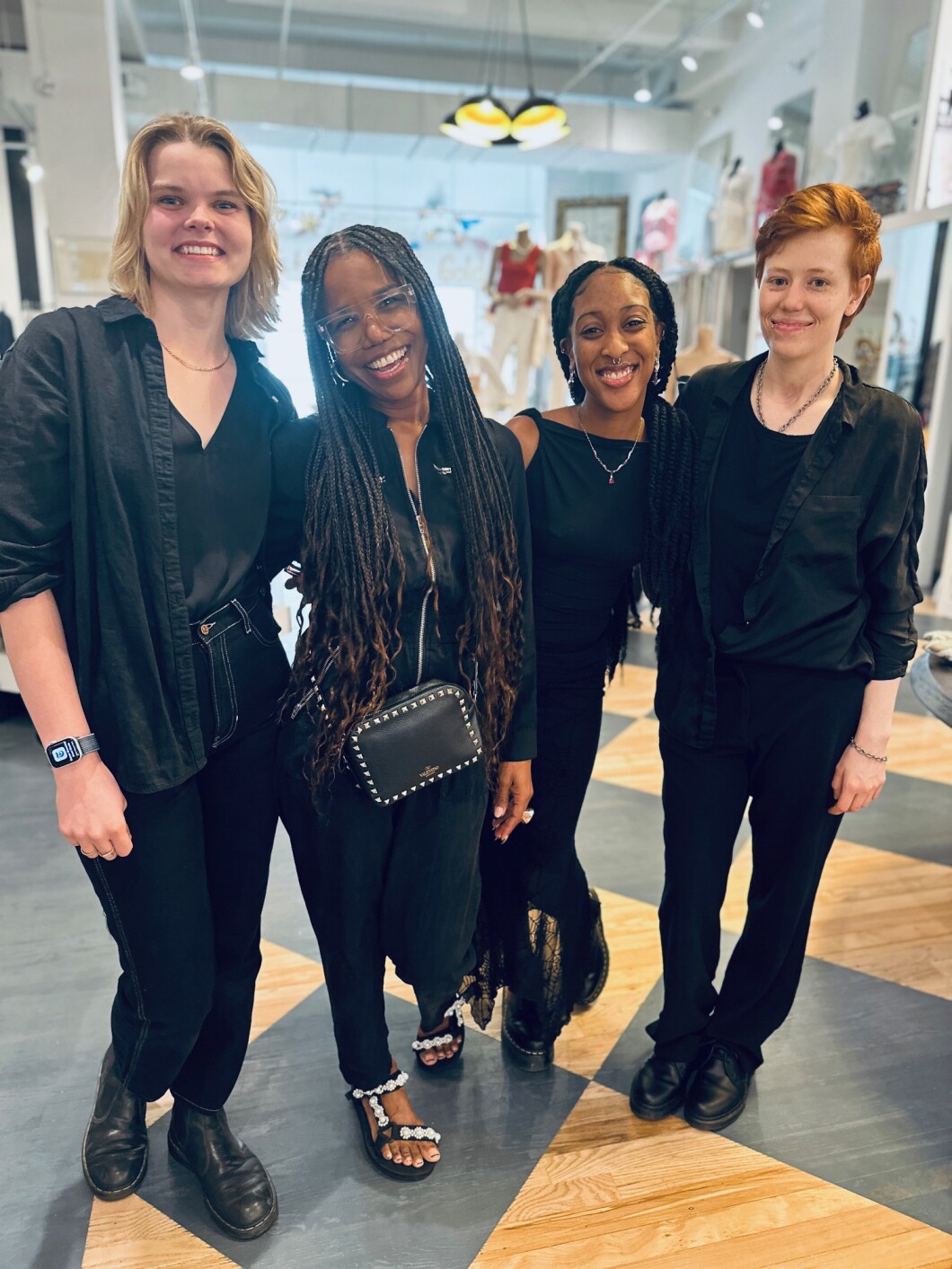
A nationwide retail theft epidemic cost the United States close to $100 billion in 2021. Stores are being forced to raise prices or shut up shop, insurers are refusing to help, and smaller mom and pop stores are being left behind. In this series, Mayhem on Main Street, The Washington Examiner will investigate the causes behind the scourge of shoplifting, the role of the cartels, the cost to stores big and small, and the complicity of lax prosecutors. Part One will focus on the impact on mom and pop stores.
Deborah Koenigsberger has run two small businesses in New York’s Flatiron district for more than three decades. The former model moved to the now-trendy area back in the late 1980s, at the height of the crack and heroin epidemic, and says conditions for small business owners are scarier now than they were back then.
In the past few years, Koenigsberger’s stores have been held up at gunpoint and robbed more times than she can count. She’s had employees, fearing for their personal safety, quit on the spot and has watched helplessly as emboldened shoplifters, fearing no legal repercussions, make eye contact with her, take items from her boutique, and waltz out without a care in the world. Sometimes, these brazen lawbreakers come back for more.
UAW UNION WORKERS AUTHORIZE AUTO STRIKE AMID CONTRACT NEGOTIATIONS

“I might as well leave my door open and say, ‘Help yourself,'” she said.
Though the repeated attacks have shaken her confidence, Koenigsberger is refusing to back down.
“I have a business to run, and for me, it’s very personal when you steal from me,” she told the Washington Examiner. “It just feels like I am being violated again and again and again.”
Across America, small mom-and-pop shops like Koenigsberger’s are being ruthlessly targeted by thieves, some from organized groups and others just out for themselves. As a result, small business owners are either hiking up prices to offset the loss or, in a majority of cases, throwing in the towel.
Filing an insurance claim, several said, would almost assuredly result in premium hikes or dropped coverage.
“There are very few options, and there’s a huge amount of frustration,” Koenigsberger said. “You are constantly trying to be one foot ahead of the criminal at all times, which means you’re spending money you don’t have, and your profits are already so slim. Eventually, a lot of people who have sense just give up, and then there are those of us who just slug away.”

In June, the U.S. Chamber of Commerce announced a spike in retail theft, citing a survey that showed 56% of small business retailers reported they had been victims of shoplifting, 50% said the issue had gotten worse, and 46% said they had been “forced to increase their prices” because of shoplifting.
“Retail theft is not a victimless crime, and its increasing prevalence means greater danger for store employees and higher costs for law-abiding Americans,” Neil Bradley, chief policy officer at the U.S. Chamber of Commerce, said. “Store owners are not only confronted with traditional shoplifting but increasingly with highly organized criminal gangs who seek to profit by taking advantage of gaps in the law.”
Last year, Tamara Young, the owner of Consign Couture, an upscale consignment store in Oregon, expanded her business to a second location in Washington Square, a Portland-area mall that houses high-end retailers like Coach and Blue Nile as well as more moderately priced stores like Claire’s and JCPenney. She picked the location because she felt it was a “more secure place to sell Louis Vuitton and Chanel bags.”
Since moving, her store has been hit by shoplifters 19 different times. They’ve taken off with more than $56,000 in designer bags, clothing, and shoes, reported KGW.
One woman was caught on camera grabbing a Louis Vuitton bag and stuffing it into a baby stroller she brought in that was covered by a blanket.
When it came time to resign her lease, Young opted out. Now back to just one location in Multnomah Village, she has decided to stop accepting designer bags for consignment altogether.
“The police have warned us that one day our staff may be standing in between a thief and the bags they are after,” she posted on her store’s blog. “The possibility of our team being watched, followed, and forced to open a safe or vault under the threat of bodily harm is unfathomable. To put our team at risk over a designer handbag is quite simply not worth it, and particularly worrying when the response times from the police are so great and criminals are not held accountable.”
Young added that she has been advised by law enforcement to hire an armed security guard, which she said is “not worth it.”
“As we manage our anger and frustration, and get back on our feet, we will also be working on a list of actions we can take to work toward political change on these issues,” she said.
Dale Hardware, a family-owned store in Freemont, California, had more than $700,000 in merchandise stolen last year, owner Kyle Smith told the Washington Examiner, adding that rampant shoplifting is an “epidemic” affecting small businesses coast to coast.
“If the government doesn’t step in at some point and decide that they are actually going to hold some people accountable, then we live in a completely lawless society,” he said, adding that he isn’t advocating for “locking people up for 20 years” but says there needs to be consequences. Smith “almost hired” three separate armed guards before ultimately deciding against it because of a “hands-off” policy in the Bay Area, which prohibits guards from being able to interact with or physically block someone from taking goods out of the store. Basically, they are only allowed to serve as a visual deterrent.
“It’s a deterrent if you’re a 17-year-old high school kid that doesn’t know better, but if you’re a professional criminal … it’s not a deterrent anymore,” Smith said. “You’re going to walk by with a middle finger up and say, ‘Have a nice day.'”
Lisa Nicewaner, a retired teacher-turned-co-owner of Back in Time Comics and Toys in Liberty, Missouri, told the Washington Examiner that, unlike big businesses that can sometimes write off losses, every item taken from her four-year-old store directly affects her bottom line.
“When you steal something, it’s literally taking it from us,” she said.
Nicewarner and her husband, Sean, also a retired teacher, opened their brick and mortar during the coronavirus pandemic. While most of their customers are law-abiding citizens, they have noted an uptick in theft.
“A couple came in and the male was at the front of the counter and the female had stolen some books,” she said. “I could tell she took them, but I didn’t see her. They both left together.”
Nicewarner said the couple tried to sell the book to a similar store, adding that her store has also been hit by online looters. A “customer” recently placed a $400 order. After mailing the material, they received word from the bank that the card was reported stolen and that Back in Time Comics would have to take the loss.
Smith and Koenigsberger said that filing an insurance claim would be futile — and they aren’t alone.
At a panel of Seattle business owners last year, Don Blakeney, executive director for the U-District Partnership, said he had seen 25 storefront windows smashed over the course of a few weeks and that the small business owners had nowhere to turn.
“Not only have businesses been damaged, but they can’t get insurance to cover the issues they are seeing, or they have been told their neighborhood is just too risky for insurance policies,” he said at the Seattle City Council-hosted event.
While there is no definite data on how much insurance rates have increased nationwide, the Washington Examiner spoke to several business owners who claimed it cost less to absorb losses from shoplifters than to file a claim.

“I know that every time we’re hit, we cannot file insurance claims because one, the deductible is so high, and two, you file a claim and then they drop you,” Koenigsberger said. “So you have to be hit really hard. I had to do it last year, and they put you through the wringer, and they try to wear you down until you just drop it. Most retailers, I guarantee you, eat the loss.”
Some states are trying to level the playing field by passing laws that come down harder on shoplifters.
In 2023, six states — Oregon, Minnesota, New Mexico, Indiana, Alabama, and Virginia — passed laws that would increase the punishment for organized retail theft. In Virginia, for example, a new law that went into effect on July 1 makes it a felony punishable by up to 20 years in prison. New Mexico’s law allows prosecutors to add up the cash value of stolen goods to determine the potential penalty a shoplifter could face, maxing out at nine years behind bars for stealing more than $20,000 worth of goods.
Koenigsberger believes that while lawmakers are finally coming around to target retail theft, they are doing so to protect large retailers, not small businesses like hers.

“I think they are all such hypocrites,” she said. “They all talk about how small businesses are the backbone of cities. And how we employ people, and they turn their backs on us. Nobody out there seriously cares about a small business. … The bigger you are, the stronger your voice. The smaller you are, the less voice you have. You would think that with all the complaining we do that somebody would finally hear us and treat us as if we’re important, important as the politicians say we are. But politicians are too busy being politicians. They lie to you because they want to get your vote, and the second they do, they’re like, ‘Oh, we said that?'”
CLICK HERE FOR MORE FROM THE WASHINGTON EXAMINER
Despite her frustrations, Koenigsberger says she won’t be bullied out of business.
“You are not going to tell me how to run my business because you are a criminal,” she said. “So you just keep fighting. You fight and you fight. It’s not like I can go and reinvent myself as a coder. You do what you know.”




